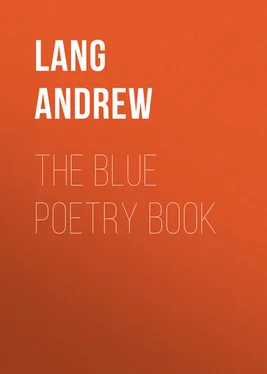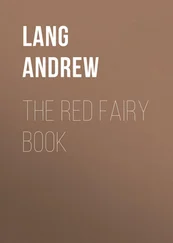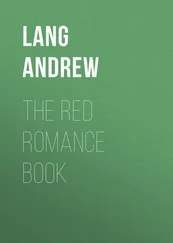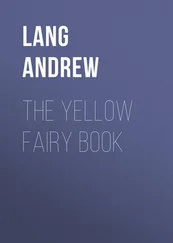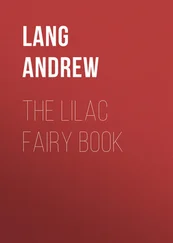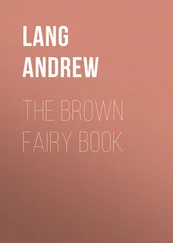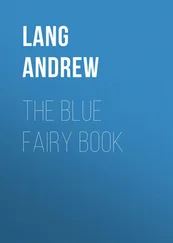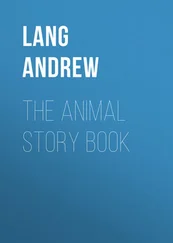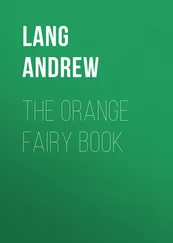Andrew Lang - The Blue Poetry Book
Здесь есть возможность читать онлайн «Andrew Lang - The Blue Poetry Book» — ознакомительный отрывок электронной книги совершенно бесплатно, а после прочтения отрывка купить полную версию. В некоторых случаях можно слушать аудио, скачать через торрент в формате fb2 и присутствует краткое содержание. Жанр: foreign_antique, foreign_prose, на английском языке. Описание произведения, (предисловие) а так же отзывы посетителей доступны на портале библиотеки ЛибКат.
- Название:The Blue Poetry Book
- Автор:
- Жанр:
- Год:неизвестен
- ISBN:нет данных
- Рейтинг книги:3 / 5. Голосов: 1
-
Избранное:Добавить в избранное
- Отзывы:
-
Ваша оценка:
- 60
- 1
- 2
- 3
- 4
- 5
The Blue Poetry Book: краткое содержание, описание и аннотация
Предлагаем к чтению аннотацию, описание, краткое содержание или предисловие (зависит от того, что написал сам автор книги «The Blue Poetry Book»). Если вы не нашли необходимую информацию о книге — напишите в комментариях, мы постараемся отыскать её.
The Blue Poetry Book — читать онлайн ознакомительный отрывок
Ниже представлен текст книги, разбитый по страницам. Система сохранения места последней прочитанной страницы, позволяет с удобством читать онлайн бесплатно книгу «The Blue Poetry Book», без необходимости каждый раз заново искать на чём Вы остановились. Поставьте закладку, и сможете в любой момент перейти на страницу, на которой закончили чтение.
Интервал:
Закладка:
Various
The Blue Poetry Book 7th. Ed
INTRODUCTION
The purpose of this Collection is to put before children, and young people, poems which are good in themselves, and especially fitted to live, as Theocritus says, ‘on the lips of the young.’ The Editor has been guided to a great extent, in making his choice, by recollections of what particularly pleased himself in youth. As a rule, the beginner in poetry likes what is called ‘objective’ art – verse with a story in it, the more vigorous the story the better. The old ballads satisfy this taste, and the Editor would gladly have added more of them, but for two reasons. First, there are parents who would see harm, where children see none, in ‘Tamlane’ and ‘Clerk Saunders.’ Next, there was reason to dread that the volume might become entirely too Scottish. It is certainly a curious thing that, in Mr. Palgrave’s Golden Treasury , where some seventy poets are represented, scarcely more than a tenth of the number were born north of Tweed. In this book, however, intended for lads and lassies, the poems by Campbell, by Sir Walter Scott, by Burns, by the Scottish song-writers, and the Scottish minstrels of the ballad, are in an unexpectedly large proportion to the poems by English authors. The Editor believes that this predominance of Northern verse is not due to any exorbitant local patriotism of his own. The singers of the North, for some reason or other, do excel in poems of action and of adventure, or to him they seem to excel. He is acquainted with no modern ballad by a Southern Englishman, setting aside ‘ Christabel Конец ознакомительного фрагмента. Текст предоставлен ООО «ЛитРес». Прочитайте эту книгу целиком, купив полную легальную версию на ЛитРес. Безопасно оплатить книгу можно банковской картой Visa, MasterCard, Maestro, со счета мобильного телефона, с платежного терминала, в салоне МТС или Связной, через PayPal, WebMoney, Яндекс.Деньги, QIWI Кошелек, бонусными картами или другим удобным Вам способом.
’ and the ‘ Ancient Mariner Конец ознакомительного фрагмента. Текст предоставлен ООО «ЛитРес». Прочитайте эту книгу целиком, купив полную легальную версию на ЛитРес. Безопасно оплатить книгу можно банковской картой Visa, MasterCard, Maestro, со счета мобильного телефона, с платежного терминала, в салоне МТС или Связной, через PayPal, WebMoney, Яндекс.Деньги, QIWI Кошелек, бонусными картами или другим удобным Вам способом.
– ’ poems hardly to be called ballads – which equals ‘ The Eve of St. John. Конец ознакомительного фрагмента. Текст предоставлен ООО «ЛитРес». Прочитайте эту книгу целиком, купив полную легальную версию на ЛитРес. Безопасно оплатить книгу можно банковской картой Visa, MasterCard, Maestro, со счета мобильного телефона, с платежного терминала, в салоне МТС или Связной, через PayPal, WebMoney, Яндекс.Деньги, QIWI Кошелек, бонусными картами или другим удобным Вам способом.
’ For spirit-stirring martial strains few Englishmen since Drayton have been rivals of Campbell, of Scott, of Burns, of Hogg with his song of ‘Donald McDonald.’ Two names, indeed, might be mentioned here: the names of the late Sir Francis Doyle and of Lord Tennyson. But the scheme of this book excludes a choice from contemporary poets. It is not necessary to dwell on the reasons for this decision. But the Editor believes that some anthologist of the future will find in the poetry of living English authors, or of English authors recently dead, a very considerable garden of that kind of verse which is good both for young and old. To think for a moment of this abundance is to conceive more highly of Victorian poetry. There must still, after all, be youth and mettle in the nation which could produce ‘The Ballad of the Revenge,’ ‘Lucknow,’ ‘The Red Thread of Honour,’ ‘The Loss of the Birkenhead,’ ‘The Forsaken Merman,’ ‘How they brought the Good News from Ghent to Aix,’ ‘The Pied Piper of Hamelin,’ and many a song of Charles Kingley’s, not to mention here the work of still later authors. But we only glean the fields of men long dead.
For this reason, then – namely, because certain admirable contemporary poems, like ‘Lucknow’ and ‘The Red Thread of Honour,’ are unavoidably excluded – the poems of action, of war, of adventure, chance to be mainly from Scottish hands. Thus Campbell and Scott may seem to hold a pre-eminence which would not have been so marked had the works of living poets, or of poets recently dead, been available. Yet in any circumstances these authors must have occupied a great deal of the field: Campbell for the vigour which the unfriendly Leyden had to recognise; Scott for that Homeric quality which, since Homer, no man has displayed in the same degree. Extracts from his long poems do not come within the scope of this selection. But, estimated even by his lyrics, Scott seems, to the Editor, to justify his right, now occasionally disdained, to rank among the great poets of his country. He has music, speed, and gaiety, as in ‘ The Hunting Song HUNTING SONG Waken, lords and ladies gay! On the mountain dawns the day; All the jolly chase is here, With hawk, and horse, and hunting spear! Hounds are in their couples yelling, Hawks are whistling, horns are knelling; Merrily, merrily, mingle they, ‘Waken, lords and ladies gay.’ Waken, lords and ladies gay! The mist has left the mountain grey, Springlets in the dawn are steaming, Diamonds on the brake are gleaming; And foresters have busy been, To track the buck in thicket green; Now we come to chant our lay, ‘Waken, lords and ladies gay.’ Waken, lords and ladies gay! To the greenwood haste away; We can show you where he lies, Fleet of foot, and tall of size; We can show the marks he made, When ’gainst the oak his antlers fray’d; You shall see him brought to bay — ‘Waken, lords and ladies gay.’ Louder, louder chant the lay, Waken, lords and ladies gay! Tell them youth, and mirth, and glee, Run a course as well as we; Time, stern huntsman! who can baulk, Stanch as hound, and fleet as hawk? Think of this, and rise with day, Gentle lords and ladies gay! Sir W. Scott.
’ or in ‘ Nora’s Vow: NORA’S VOW I Hear what Highland Nora said, — ‘The Earlie’s son I will not wed, Should all the race of nature die, And none be left but he and I. For all the gold, for all the gear, And all the lands both far and near, That ever valour lost or won, I would not wed the Earlie’s son.’ II ‘A maiden’s vows,’ old Callum spoke, ‘Are lightly made, and lightly broke; The heather on the mountain’s height Begins to bloom in purple light; The frost-wind soon shall sweep away That lustre deep from glen and brae; Yet Nora, ere its bloom be gone, May blithely wed the Earlie’s son.’ — III ‘The swan,’ she said, ‘the lake’s clear breast May barter for the eagle’s nest; The Awe’s fierce stream may backward turn, Ben-Cruaichan fall, and crush Kilchurn; Our kilted clans, when blood is high, Before their foes may turn and fly; But I, were all these marvels done, Would never wed the Earlie’s son.’ IV Still in the water-lily’s shade Her wonted nest the wild-swan made; Ben-Cruaichan stands as fast as ever, Still downward foams the Awe’s fierce river; To shun the clash of foeman’s steel, No Highland brogue has turn’d the heel: But Nora’s heart is lost and won, – She’s wedded to the Earlie’s son! Sir W. Scott.
’
Интервал:
Закладка:
Похожие книги на «The Blue Poetry Book»
Представляем Вашему вниманию похожие книги на «The Blue Poetry Book» списком для выбора. Мы отобрали схожую по названию и смыслу литературу в надежде предоставить читателям больше вариантов отыскать новые, интересные, ещё непрочитанные произведения.
Обсуждение, отзывы о книге «The Blue Poetry Book» и просто собственные мнения читателей. Оставьте ваши комментарии, напишите, что Вы думаете о произведении, его смысле или главных героях. Укажите что конкретно понравилось, а что нет, и почему Вы так считаете.
